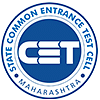
Table of Contents
The RIE CEE Syllabus 2025 has been released by NCERT on the official website. Authorities released the RIE CEE 2025 exam syllabus for B.Sc B.Ed, BA B.Ed, MSc B.Ed, B.Ed, M.Ed, B.Ed-M.Ed Integrated Courses.
Aspirants can get higher scores once they are familiar with the latest RIE CEE syllabus declared by authorities. Aspirants can check the topic covered in each of the three sections, Reasoning Ability, Teaching Aptitude, and Language Proficiency. Get all the subject-wise details on the page below.
RIE CEE 2025 Syllabus Highlights
The candidates who are appearing for RIE CEE 2025 must get familiar with the exam pattern, detailed topics wise syllabus and general details related to the exam. Some of the basic details related to the exam are mentioned below.
| Event | Details |
| Exam Name | RIE CEE |
| Conducting Body | NCERT |
| Offiical Website | cee.ncert.gov.in |
| Syllabus |
|
RIE CEE 2025 Section-wise Syllabus
Aspirants must download the RIE CEE Syllabus PDF for preparation before appearing for the exam. Candidates must refer to the RIE CEE syllabus to get admissions into reputed colleges and institutions. Get the RIE CEE syllabus 2025 details in the table mentioned below.
| Sections | Topics |
|---|---|
|
Language Proficiency |
It includes Hypernyms and Hyponyms, Rearranging sentences, Fill in the blanks, and Sequencing, Spelling, Idioms and phrases, and Sequencing, Full forms. |
|
Teaching attitude and Aptitude |
It will cover specific areas like Leadership qualities, Teaching Aptitude, Information and Communication Technology, Group Management, Teaching Techniques, Emotional Stability, Social Balancing, Intrapersonal and interpersonal traits, logical Reasoning, Attitude towards education, Teaching Attitude, Environmental knowledge, Teaching Profession. |
|
Reasoning Ability |
It covers topics like Letter series Odd one out, Missing numbers, Blood Relations, Verbal and non-verbal reasoning, Jumbling, Arranging the statements, Input-Output, Analogy, Puzzles, Logical problems, Syllogism, Decision Making, Statement and conclusions, Word Formation, Course of action, etc. |
RIE CEE 2025 Exam Pattern
Applicants must be aware of the RIE CEE syllabus for BSc 2025 and the examination pattern before the exam date to score well. The conducting authorities have released the examination pattern for RIE CEE 2025 as stated below in the tabular format.
| Particulars | Details |
|---|---|
|
Exam Mode |
Online |
|
Exam Duration |
2 hours (120 minutes) |
|
Question Paper Level |
Senior Secondary Education Level, Professional Education Level, and Graduation Level. |
|
Type of Groups |
All the groups will be asked separate questions in the exam.
|
|
Total Sections |
3 (Language Proficiency In English, Teaching Aptitude, Reasoning Ability) |
|
Total Questions |
80 |
|
Total Marks |
160 |
|
Marking Scheme |
For every correct answer, aspirants will get two marks. For every incorrect answer, 0.5 marks will get deducted as negative marking. Candidates will not get any score for unattempted questions. |
FAQs on RIE CEE Syllabus
Q: In how many sections is RIE CEE syllabus 2025 divided?
The RIE CEE 2025 syllabus is divided in 3 sections - Language proficiency, teaching aptitude, and reasoning ability.
Q: What topics are covered in the language proficiency section of the RIE CEE 2025 syllabus?
The RIE CEE 2025 language proficiency topic includes Hypernyms and Hyponyms, Rearranging sentences, Fill in the blanks, Sequencing, Spelling, Idioms and phrases, and Sequencing, Full forms.
Q: What is the marking scheme of the RIE CEE 2025 exam?
For every correct answer, aspirants will get two marks. For every incorrect answer, 0.5 marks will get deducted as negative marking. Candidates will not get any score for unattempted questions.
Q: What topics are covered in the reasoning ability section of the RIE CEE 2025 syllabus?
Ability It covers topics like Letter series Odd one out, Missing numbers, Blood Relations, Verbal and non-verbal reasoning, Jumbling, Arranging the statements, Input-Output, Analogy, Puzzles, Logical problems, Syllogism, Decision Making, Statement and conclusions, Word Formation, Course of action, etc.


















